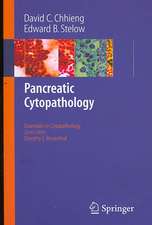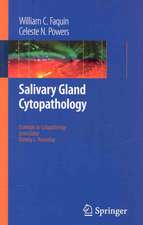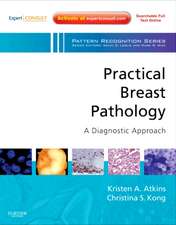Hearing, Speech, and Communication Disorders: Cumulated Citations 1973
Editat de Information Center for Hearing Speech and Disordersen Limba Engleză Paperback – 15 iul 2012
| Toate formatele și edițiile | Preț | Express |
|---|---|---|
| Paperback (2) | 422.13 lei 6-8 săpt. | |
| Springer Us – 15 iul 2012 | 422.13 lei 6-8 săpt. | |
| Springer Us – 5 iul 2012 | 770.41 lei 6-8 săpt. |
Preț: 422.13 lei
Preț vechi: 444.35 lei
-5% Nou
Puncte Express: 633
Preț estimativ în valută:
80.77€ • 84.33$ • 66.85£
80.77€ • 84.33$ • 66.85£
Carte tipărită la comandă
Livrare economică 04-18 aprilie
Preluare comenzi: 021 569.72.76
Specificații
ISBN-13: 9781475706284
ISBN-10: 1475706286
Pagini: 788
Ilustrații: XII, 772 p.
Dimensiuni: 210 x 279 x 41 mm
Greutate: 1.74 kg
Ediția:Softcover reprint of the original 1st ed. 1974
Editura: Springer Us
Colecția Springer
Locul publicării:New York, NY, United States
ISBN-10: 1475706286
Pagini: 788
Ilustrații: XII, 772 p.
Dimensiuni: 210 x 279 x 41 mm
Greutate: 1.74 kg
Ediția:Softcover reprint of the original 1st ed. 1974
Editura: Springer Us
Colecția Springer
Locul publicării:New York, NY, United States
Public țintă
ResearchCuprins
Hearing and Balance Citations.- Anatomy and physiology of the peripheral auditory system.- Neurophysiology and neuroanatomy of the central auditory system.- Audiological, psychophysical, and behavioral measurement of hearing.- Auditory pathologies (not therapy).- Medical/surgical management of hearing disorders.- Non-medical management of hearing disorders Audiologic habilitation.- Vestibular system: normal and pathological.- Animal communication: hearing.- Books of interest.- Language, Speech, and Voice Citations.- Anatomy and physiology of the speech mechanism.- Speech production.- Speech perception.- Linguistics.- Normal speech and language development.- Pathological speech and language development.- Speech and language pathologies.- Animal communication: signal production.- Books of interest.- Appendix and Indexes.- Productive journals.- Alphabetic index to subject headings.- Author index.
Descriere
Descriere de la o altă ediție sau format:
Information analysis centers were developed to help the scientist and practitioner cope with the ever increasing mass of published and unpublished information in a specific field. Their establishment resulted from a further extension of those pressures that had brought about the formation of the specialized primary journal and the abstracting services at the turn of the century. The information analysis center concept was greatly advanced by the 1963 report of the President's Science Advisory Committee Panel on Science Information. This report stated: " . . . scientific interpreters who can collect relevant data, review a field, and distill information in a manner that goes to the heart of a technical situation are more help to the overburdened specialist than is a mere pile of relevant docu ments. " Such specialized information centers are operated in closest possible contact with working scientists in the field. These centers not only furnish information about ongoing research and dis seminate and retrieve information but also create new information and develop new methods of infor mation analysis, synthesis, and dissemination. The continually expanding biomedical literature produced by scientists from the world's laboratories, research centers, and medical centers led the National Institute of Neurological Diseases and Stroke in 1964 to initiate a national Neurological Information Network of specialized centers for neurological information. The Centers are designed to bring under control and to promote ready access to important segments of the literature.
Information analysis centers were developed to help the scientist and practitioner cope with the ever increasing mass of published and unpublished information in a specific field. Their establishment resulted from a further extension of those pressures that had brought about the formation of the specialized primary journal and the abstracting services at the turn of the century. The information analysis center concept was greatly advanced by the 1963 report of the President's Science Advisory Committee Panel on Science Information. This report stated: " . . . scientific interpreters who can collect relevant data, review a field, and distill information in a manner that goes to the heart of a technical situation are more help to the overburdened specialist than is a mere pile of relevant docu ments. " Such specialized information centers are operated in closest possible contact with working scientists in the field. These centers not only furnish information about ongoing research and dis seminate and retrieve information but also create new information and develop new methods of infor mation analysis, synthesis, and dissemination. The continually expanding biomedical literature produced by scientists from the world's laboratories, research centers, and medical centers led the National Institute of Neurological Diseases and Stroke in 1964 to initiate a national Neurological Information Network of specialized centers for neurological information. The Centers are designed to bring under control and to promote ready access to important segments of the literature.










